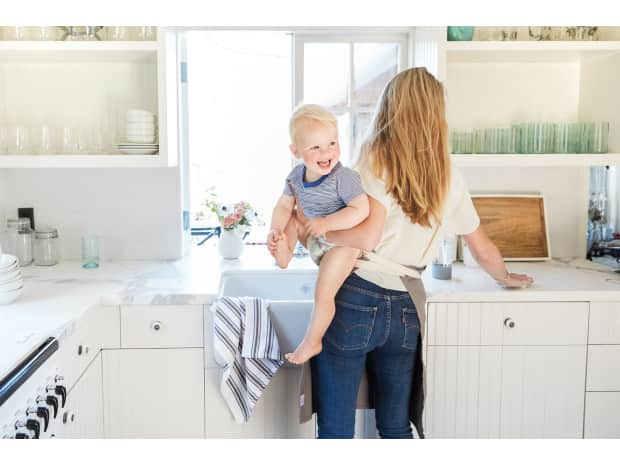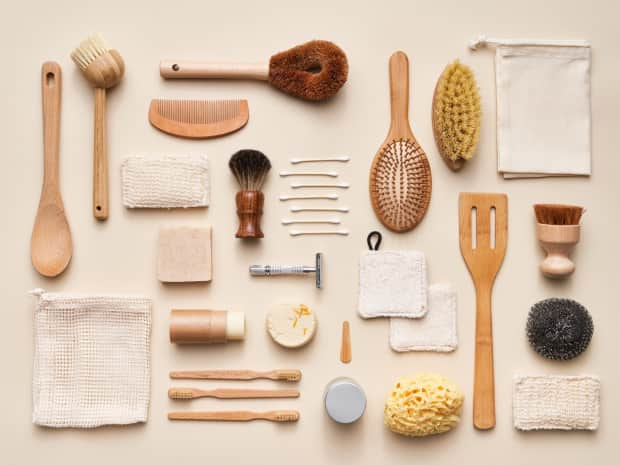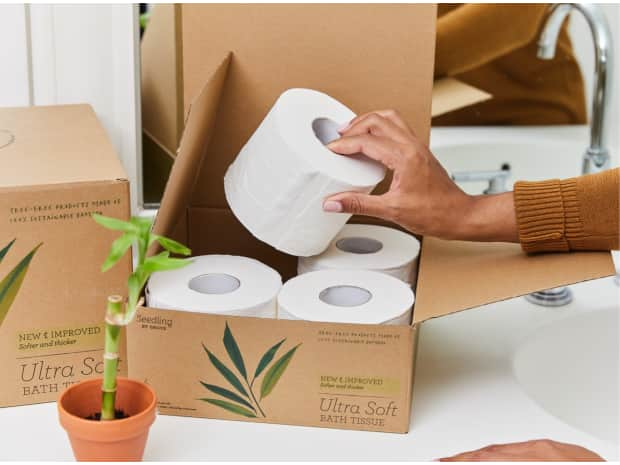
12 best countertop cleaners.
We've pulled the top 12 best countertop cleaners determined by Grove members.
Read More


Last Updated: August 5, 2024
Let's dig into the best natural cleaners for butcher block countertops and how you should actually clean these unique surfaces correctly.
A butcher block countertop can be functional, affordable, and beautiful—not to mention, they're a home-cook's dream. And, guess what—contrary to what you might think, butcher block countertops are easy to clean and maintain with simple, natural products that won’t harm the wood.
Natural cleaning products use ingredients that are healthier and safer the home. Let’s dig into what the best natural cleaners are for butcher block countertops and how you should actually clean them correctly.
Maintaining butcher block countertops is essential in order to limit any bacteria that might be inclined to make their home in the wood. Scratches to the surface and damage to the seal are two main factors that allow bacteria to breed and live.
But that doesn't mean butcher block countertops aren’t sanitary … they're just as clean as any other countertop, as long as you’re using the right cleaners and cleaning them correctly.
Quick tip: Don't work with raw meat directly on your butcher block. This will help avoid exposing your butcher block to extra bacteria that could be potentially dangerous. It’s best to deal with raw meat on a plastic cutting board as they can easily go right in the dishwasher when you’re done.
Your best bet is to clean your butcher block after each use. Load up your natural cleaning solution in an easily-accessible, reusable spray bottle and keep it next to the counter for convenient cleaning.
For a deep clean, consider piling and resealing your countertop once a season (at least once a year).
To clean butcher block, you can use a number of products, including a natural multi-surface cleaner or a DIY solution with natural products you have at home.
All-natural cleaners that are safe and effective to clean butcher block include:
The tools you’ll need to clean butcher block include:
For a DIY natural cleaner that works on butcher block, gather the following:
To get your butcher block countertop clean, free of bacteria, and lasting longer, follow these 3 easy steps.
Before using any cleaning solution, wipe off or scrape away extra debris or crumbs.
After clearing the surface free, it's time to apply your all-purpose cleaning solution (which can also be DIY'd by mixing together hot water and a few drops of liquid dish soap).
Spray your cleaning solution, and then use a sponge to wipe the entire surface of your butcher block.
Once you’ve gotten every last inch of it covered with cleaner, rinse with your sponge and then wipe off the cleaning solution with water. Rinse and repeat until the solution is gone.
Quick tip: When applying the cleaning solution, spread along the wood end grain (not against it).
And if you’re more visual, take a peek at this video to see it in action.
It's a good idea to sanitize your butcher block counters at least once a week.
To start, grab an empty spray bottle and add distilled white vinegar or pick up a pre-mixed bottle of natural cleaning vinegar that has even more sanitizing properties.
Spray the vinegar on the entire surface and leave it for at least 10 minutes. Then, wipe up with a dry microfiber cloth.
To go for an even deeper clean and to remove stains or spots, create a mixture of 1 cup lemon juice and ½ cup salt.
Apply the lemon juice and salt mixture to the stained areas, rub in, and wipe away when dry.
Grove Tip
Water stains can happen with a butcher block. The number one tip is to make sure no excess water lingers on your butcher block. Butcher block is sealed and can withstand water most of the time, but as it wears down, the water can easily infiltrate and settle in — leaving hard to remove water stains.
To remove water stains from butcher block, you can use a food-grade mineral oil or beeswax. Use this oil regularly to maintain and keep the block sealed and attack stains from water or food.
For even tougher stains, try sanding them down with sandpaper and then conditioning that spot with your mineral oil.
Conditioning your wood regularly (usually once per week when the counter is new, and then once per month once it’s worn) will keep your countertop in its best condition, able to withstand whatever cooking mishap or miracle you throw its way.

We've pulled the top 12 best countertop cleaners determined by Grove members.

Learn how to clean hardwood floors the Grove way with amazing natural cleaners and all the right tools.

Discover 5 bamboo products that are truly eco-friendly alternatives to tree paper products.

Here's 11 bamboo products that are great for the environment and highly rated by our members.